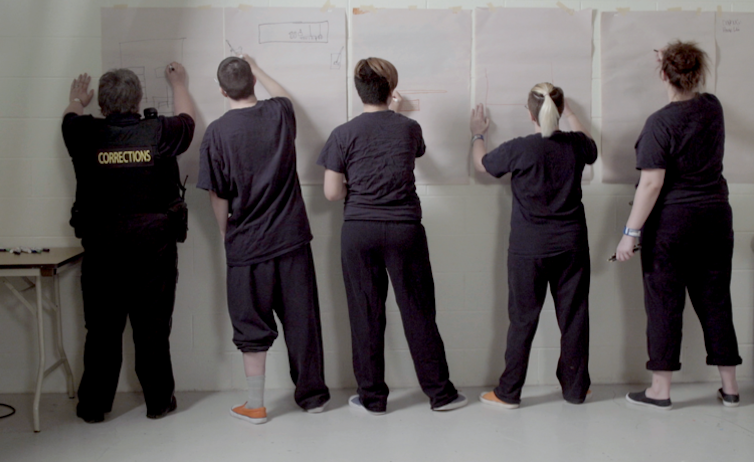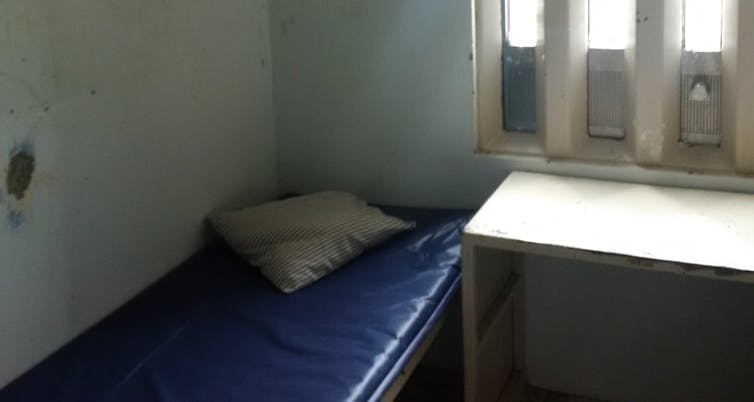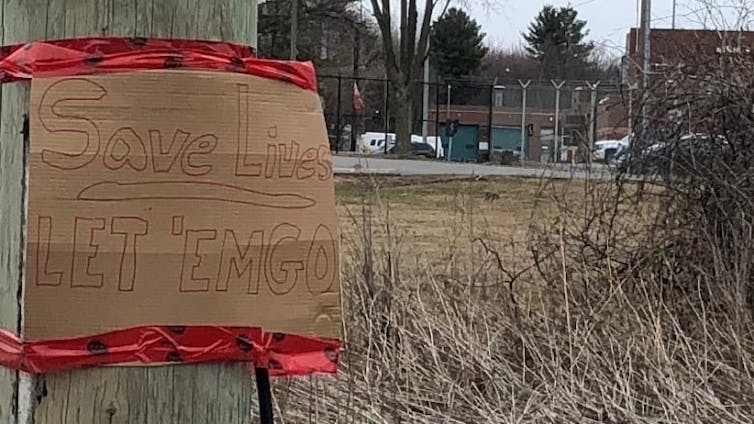±«Óătv the authors: is a PhD candidate in Nursing at ±«Óătv University. is a PhD candidate in Political Studies at Queen's University. is a PhD candidate in Communication and Culture Ryerson University.
Global uprisings in response to anti-Black police brutality have prompted demands to defund policing and reinvest in communities. Public health professionals recognize the connections between racism and community well-being. But it is not just policing agencies that have a systemic racism problem, Canadian prisons do too.
Prisons are densely packed. Social distancing and adequate hygiene is impossible. Advocates suggest depopulating carceral facilities to reduce harm and save lives.
The Ontario government recently announced it would funnel into corrections â despite anticipating a due to the COVID-19 pandemic.
The Saskatchewan government also recently announced it would spend to build a remand centre expansion at the Saskatoon Correctional Centre, while predicting a deficit.
These developments are regressive. It is time to look at alternatives to imprisonment and set our sights towards .
As soon as COVID-19 spread to North America, health professionals, scholars and activists . Advocates pleaded for governments to release prisoners.
One province, Nova Scotia, heeded this call.

Nova Scotiaâs approach
In the judiciary, corrections, crown and defense counsel, along with community organizations, collaborated to cut the provincial prison population in half. As of June 16, Nova Scotiaâs jail for women had only eight prisoners. This resulted in only one case of COVID-19 in Nova Scotiaâs prison system.
Prisons that did not heed the warnings of experts â like those in â saw widespread .
We spoke with Coverdale Executive Director Ashley Avery, who reports the people they support are mostly arrested for public intoxication, homelessness and mental health crisis. These are areas where imprisonment should not be the answer.
Abolition is a creative project that replaces punishment, widely considered . Instead, transformative approaches prioritize health and well-being.
Decarceration is the effort to limit the numbers of people who are detained behind bars, either through minimizing who is sent to carceral facilities in the first place or through creating avenues to release people already in custody.
Every decarcerated person requires housing, adequate income and health services. In Nova Scotia, community groups (Coverdale Courtwork Society, Elizabeth Fry and John Howard) report it costs them $150 per person per day to keep a decarcerated person housed in a hotel with legal, health and other services. Compare this with per day to keep someone in a provincial jail.

Prison expansion is a step backward
The mass incarceration of racialized communities in Canadaâs prisons reflects the countryâs racial profiling and over-policing of Black and Indigenous people. Decarceration offers a direct way to address the systemic oppression Canada has imposed on Black and Indigenous peoples.
More than of Canadian prisoners are Indigenous (they are five per cent of the Canadian population), and are Black (they are 3.5 per cent of the population). Indigenous women account for in federal custody.
Black people are more likely to be street checked in Halifax, and more likely to be charged than white people for the same behaviour.
Indigenous confinement has been described as ââ by the Correctional Investigator of Canada and ââ by criminologists. African American literary and cultural historian Saidiya Hartman calls it the â.â
Very few releases
Eight hundred people in the federal prison system for COVID-19. Several prisons had massive COVID-19 outbreaks, and .
While the federal government claimed it had , in reality there is only evidence that it released .
Minimum security prisoners could have been released. Those close to parole could have had board appearances expedited. The elderly and unwell could have been released on compassionate grounds. , where young children live with their imprisoned mothers, could have been relocated to their communities. None of this happened.
The recent announcements about Ontario and Saskatchewan investing more dollars into prisons come amid pressing need for investments in health. Despite its promise, Nova Scotiaâs decarceration initiative is at risk of .

Time for change
The federal Black Caucus called for public investments in non-carceral . Indigenous leaders in British Columbia called for the release of , with support plans for housing, financial aid and community safety. Scâianew First Nation (Beecher Bay) Chief Councillor Russ Chipps wants William Head prison closed and the .
Abolition may sound like a radical new idea, but people have been working toward it for decades. Black feminist theorists including Angela Davis, Ruth Wilson Gilmore and Mariame Kaba helped put this vision into practice by providing language, , and .
We can defund police and prisons instead of ticketing people for being outside, snitching on our neighbours, tearing down tents, criminalizing people in mental health and addictions crisis and profiling Black and Indigenous Peoples.
Prisons are too broken to reform. If Canada is serious about dealing with racism, then the abolition of both policing and prisons is the way forward.![]()
which features includes relevant and informed articles written by researchers and academics in their areas of expertise and edited by experienced journalists.
±«Óătv University is a founding partner of The Conversation Canada, an online media outlet providing independent, high-quality explanatory journalism. Originally established in Australia in 2011, it has had more than 85 commissioning editors and 30,000-plus academics register as contributors. A full list of articles written by ±«Óătv academics can be found onÂ

